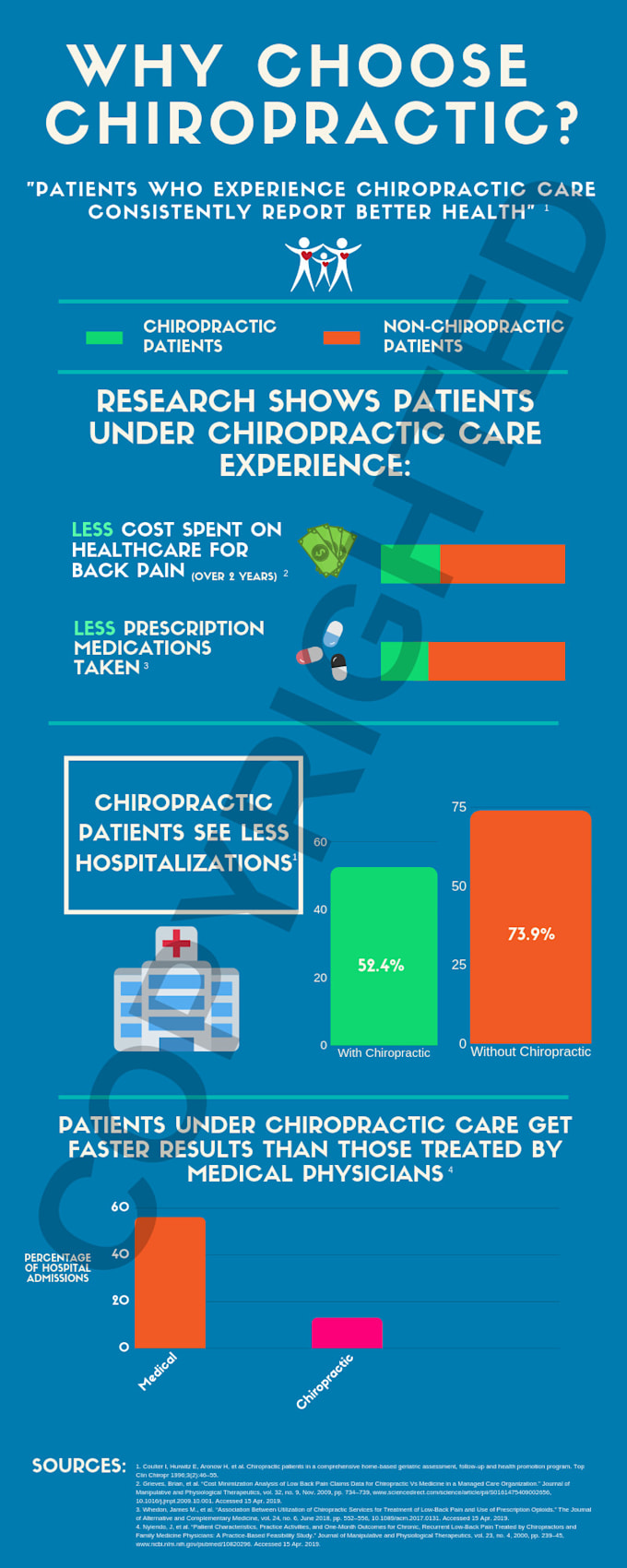The Impact Of Diet Plan On Back Pain Monitoring: Foods To Incorporate And Foods To Leave Out
The Impact Of Diet Plan On Back Pain Monitoring: Foods To Incorporate And Foods To Leave Out
Blog Article
Content Author-Mcclure Guldborg
When it concerns handling your neck and back pain, the food choices you make can substantially influence exactly how you feel each day. Picture having the ability to ease your pain just by changing what you consume. By comprehending the duty of nutrition in neck and back pain management and recognizing which foods to incorporate or stay away from, you can take proactive actions in the direction of a much healthier and a lot more comfy way of living. The link between nutrition and back health and wellness is a lot more profound than you might recognize-- let's discover exactly how specific foods can either relieve or worsen your neck and back pain.
Value of Nutrition in Back Pain
Nourishment plays a vital role in taking care of pain in the back. https://www.verywellhealth.com/who-is-at-risk-for-sciatica-297243 can significantly impact inflammation levels and total pain degrees in your back. Consuming a well balanced diet plan abundant in nutrients like vitamins D and K, calcium, magnesium, and omega-3 fats can help reduce inflammation and reinforce bones, which are necessary for back wellness.
Additionally, preserving a healthy and balanced weight via appropriate nourishment can ease anxiety on your spine, minimizing the risk of back pain.
Additionally, middle back pain treatments like antioxidants discovered in fruits and vegetables can assist deal with oxidative stress and promote recovery in the body, including the back muscular tissues and back.
On the other hand, taking in too much quantities of processed foods, sugary drinks, and undesirable fats can contribute to inflammation and weight gain, exacerbating pain in the back.
Foods to Eat for Back Health And Wellness
To sustain a healthy back, including nutrient-rich foods right into your day-to-day meals is crucial. Including foods high in anti-oxidants like berries, spinach, and kale can help in reducing swelling in your back, alleviating pain and pain. Omega-3 fatty acids found in fatty fish such as salmon and mackerel have anti-inflammatory buildings that can profit your back health.
In addition, eating nuts and seeds like almonds, walnuts, and chia seeds supplies necessary nutrients like magnesium and vitamin E, which support muscular tissue function and minimize oxidative tension. Including lean proteins such as chicken, turkey, and tofu can assist in muscular tissue repair and maintenance, promoting a solid back.
Don't fail to remember to consist of dairy or fortified plant-based alternatives for calcium to support bone health and wellness. Finally, moisten with plenty of water to keep your back discs moisturized and operating efficiently. By including these nutrient-dense foods in your diet, you can nourish your back and support general spine health and wellness.
Foods to Avoid for Back Pain
Opt for staying clear of processed foods high in added sugars and trans fats when seeking relief from back pain. These kinds of foods can contribute to swelling in the body, which may exacerbate back pain. Say no to sugary snacks sweet, pastries, and sweet drinks, along with junk food items like burgers, french fries, and fried chicken that are commonly filled with trans fats.
Furthermore, avoid foods having high levels of refined carbs, such as white bread, pasta, and pastries, as they can surge blood glucose degrees and potentially get worse swelling in the body.
It's likewise wise to limit your intake of foods high in hydrogenated fats, like red meat and full-fat dairy items, as they can contribute to swelling. Refined foods like delicatessens meats, chips, and packaged snacks are usually high in saturated fats and should be eaten in small amounts.
complete care chiropractic
To conclude, paying attention to your diet regimen and making smart food options can have a significant impact on handling pain in the back. By integrating nutrient-rich foods like berries, fatty fish, nuts, and lean proteins, and staying clear of processed and sugary things, you can help reduce inflammation and support in general back health. Remember, what you eat plays a critical function in how you really feel, so make certain to prioritize your nutrition for a much healthier back.
